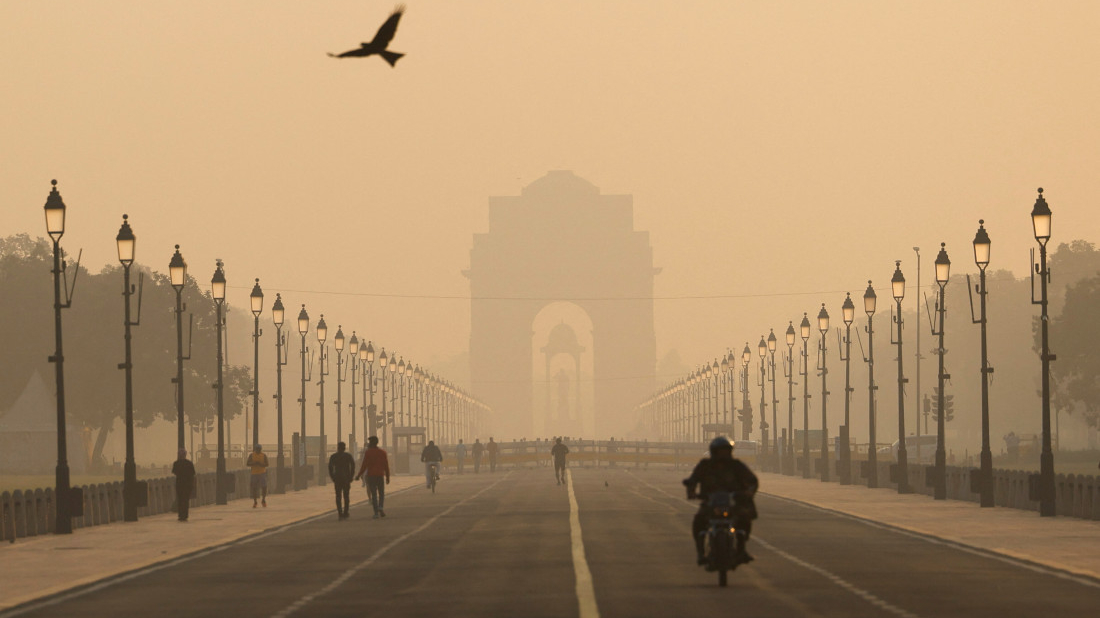Ukraine imposes new sanctions targeting Russian maritime and defence supply chains
Ukraine’s President Volodymyr Zelenskyy has approved new sanctions targeting Russian maritime operators, defence-linked companies and individuals co...

New Delhi topped global pollution charts Friday as Diwali firecracker celebrations worsened air quality to hazardous levels, despite a ban. Seasonal crop burning further compounded the smog, leaving the city blanketed in thick, dense pollution.
New Delhi ranked as the world's most polluted city on Friday after Diwali celebrations involving firecrackers, despite a ban, pushed air quality to hazardous levels. Thick smog enveloped the city, obscuring landmarks like the presidential palace and nearby gardens frequented by joggers and cyclists following Thursday's festivities. According to Swiss firm IQ Air, Delhi's air quality index (AQI) hit 348, classifying pollution as hazardous and placing the city at the top of a real-time global pollution ranking.
Although local authorities have banned firecrackers during Diwali and the winter months for several years, in line with Supreme Court orders, enforcing the ban remains challenging, despite penalties. Some Hindu groups argue the ban infringes on festival observance, while the Delhi government maintains it is intended to protect public health. Friday’s smog was further intensified by seasonal crop residue burning in northern India, which worsens air quality each winter as colder air traps pollutants from various sources.
Quentin Griffiths, co-founder of online fashion retailer ASOS, has died in Pattaya, Thailand, after falling from the 17th floor of a condominium on 9 February, Thai police confirmed.
Ukraine’s National Paralympic Committee has announced it will boycott the opening ceremony of the Milano Cortina 2026 Paralympics in Verona on 6 March, citing the International Paralympic Committee’s decision to allow some Russian and Belarusian athletes to compete under their national flags.
Eric Dane, the actor best known for his roles in 'Grey’s Anatomy' and 'Euphoria', died on Thursday, at the age of 53 after a battle with amyotrophic lateral sclerosis (ALS). His family confirmed his death after what they described as a “courageous battle” with ALS.
An Austrian climber has been convicted of gross negligent manslaughter after his girlfriend died from hypothermia while climbing Austria’s highest peak, the Grossglockner, in January 2025.
President Donald Trump said on Saturday (21 February) that he will raise temporary tariffs on nearly all U.S. imports from 10% to 15%, the maximum allowed under the law, after the Supreme Court struck down his previous tariff program.
The administration of U.S. President Donald Trump on Thursday (12 February) announced the repeal of a scientific finding that greenhouse gas emissions endanger human health, and eliminated federal tailpipe emissions standards for cars and trucks.
Tropical Cyclone Gezani has killed at least 31 people and left four others missing after tearing through eastern Madagascar, the government said on Wednesday, with the island nation’s second-largest city bearing the brunt of the destruction.
Rivers and reservoirs across Spain and Portugal were on the verge of overflowing on Wednesday as a new weather front pounded the Iberian peninsula, compounding damage from last week's Storm Kristin.
Morocco has evacuated more than 100,000 people from four provinces after heavy rainfall triggered flash floods across several northern regions, the Interior Ministry said on Wednesday.
Greenland registered its warmest January on record, sharpening concerns over how fast-rising Arctic temperatures are reshaping core parts of the island’s economy.
You can download the AnewZ application from Play Store and the App Store.

What is your opinion on this topic?
Leave the first comment